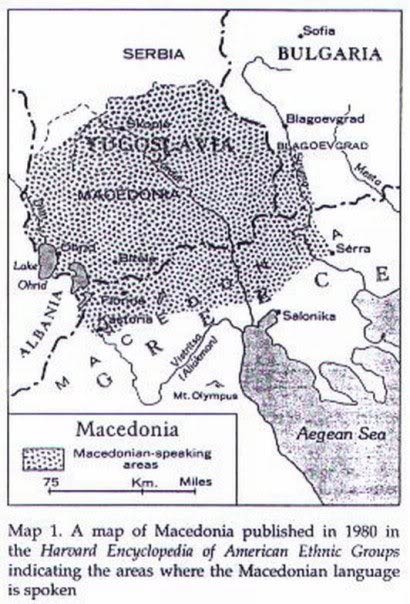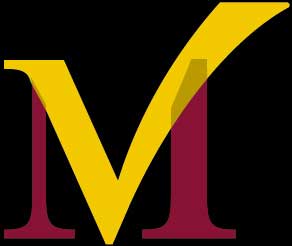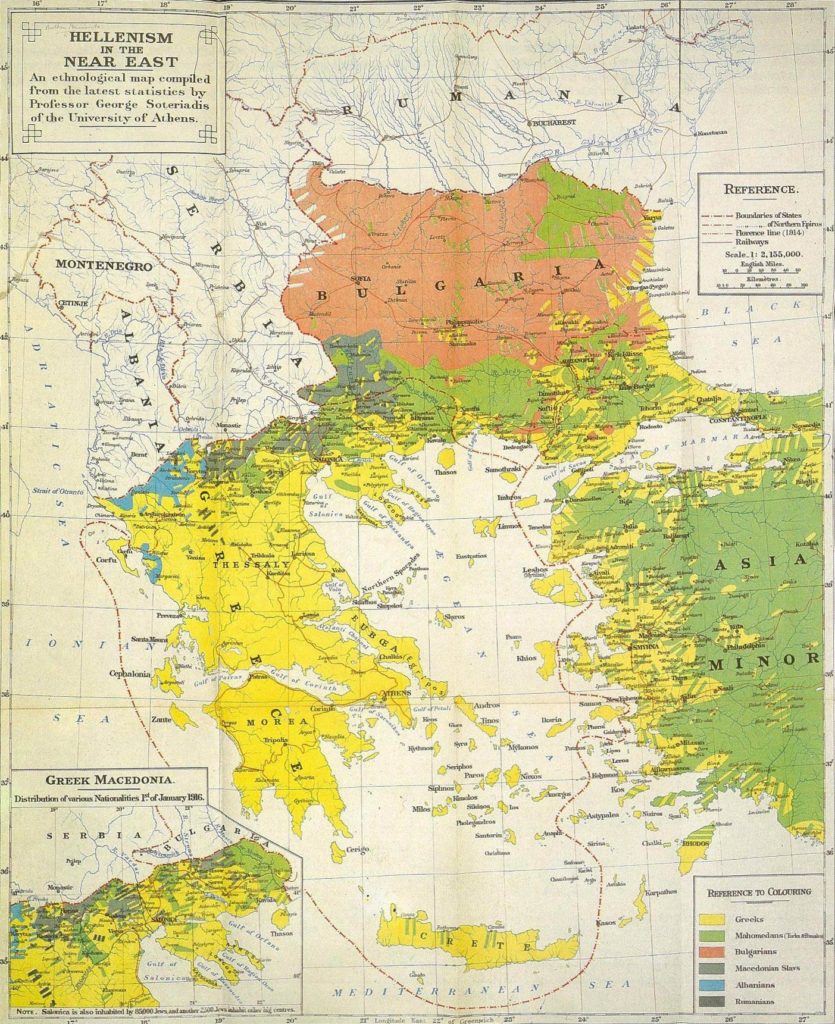Table of Contents
- “The decision to establish Macedonian as the official language of the Republic of Macedonia in 1944, therefore, ‘confirmed what was already de facto practice. It did not create a language out of the air, rather it granted recognition to a literary language whose modern development began in the 19th century.”(Friedman 1985:35). 1
- “In the world of Horace Lunt, a distinguished Slavic linguist, Bulgarian scholars who argue that the concept of a Macedonian language was unknown before World War II or who continue to claim that a Macedonian language does not exist ‘look not only dishonest, but silly,’ while Greek scholars who make similar claims are displaying ‘arrogant ignorance’ of their Slavic neighbours”. (Lunt 1984:110, 120). 2
- “The Macedonian language is accepted by linguists everywhere in the world except in Serbia, Bulgaria and Greece. It is recognized as a distinct language by various international authorities such as the Encyclopedia Britannica and The Cambridge Encyclopedia of Language. It is one of the recognized 88 world languages, spoken by close to 1.5 million people in the Republic of Macedonia, 250,000 people in Aegean Macedonia, 250,000 people in Pirin Macedonia, and around 500,000 people in other parts of the world, particularly North America and Australia.” 3
- “Modern Greece has often recognized its Slav minority and its language as Macedonian Slav, Bulgarian, or just Slav: in the official map circulated in the post -World War I negotiations (Soteriadis, 1918); in at least one official Greek Foreign Ministry document of 1924 (the language was mentioned as Macedonian, Divani, 1995:228); in interwar newspapers (Margaritis, 1993:27) or official notary documents (GHM and MRG-Greece have copies of them); in its publication of the 1920, 1928, 1940 and 1951 census results (Lithoxoou, 1995). For the 1920 census, the language is mentioned simply as Macedonian and is distinguished from Bulgarian.” 4<
- “Krste Misirkov, considered ‘the founder of the modern Macedonian literary language (Nurigiani 1972:160-161) was an outspoken and unambiguous advocate of Macedonian linguistic and national separatism. In his book On Macedonian Matters, published in 1903 in Sofia and immediately suppressed by the Bulgarians, Misirkov wrote, ‘I am a Macedonian. I write in the central Macedonian dialect, which from now on I shall always consider the Macedonian literary language.’ He not only advocated ‘completely separating our (Macedonian) interests from those of other Balkan states and independently continuing our own cultural and national development,’ but he also called for the ‘recognition of the Slavs in Macedonia as a separate nationality – Macedonians.’ He stated plainly and simply that the Macedonians are ‘a separate and independent Slav people.'” 5
Macedonian and Neighboring Languages

Map of Macedonian Speaking areas published in 1980 in the Harvard Encyclopedia of American Ethnic Groups.
Language is one of the most important features of a people. As for the Macedonian people and its state are concerned, language is of extreme significance and offers confirmation of their historical continuity. Apart from being the official language in the Republic of Macedonia, Macedonian is spoken and cherished in many European countries, the United States, Canada and Australia, wherever Macedonians live. It is also the mother tongue and a language of everyday communication in those parts of the Balkan states populated by ethnic Macedonians.
As the official language of the Republic of Macedonia, Macedonian is written using its Cyrillic alphabet. The Macedonian literary standard is a modern European language, which according to its characteristics is different from the neighboring and other Slavic and non-Slavic languages.
Macedonian is an Indo-European language from the family of Slavic languages belonging to the South-Slavic group. At the same time, it is a Balkan language. It is interesting to mention that there are instances in the world when two or more nations have a common language, and vice versa, when some nations have two languages. The Macedonian nation, however, is in this respect like the majority of nations in the world – its members have a separate language. This fact creates a feeling of independence in every member of the Macedonian nation and represents a significant contribution in the construction of Macedonian national consciousness.
Normative Structure
The historical development of the Macedonian language dates back to the 9th century AD when Slavonic literacy began with a standard Macedonian language. The modern codification of the Macedonian literary language was as late as 1944, although from the 1860s onward, attempts were made at creating a general Macedonian literary standard.
The Macedonian language has a rich history and has played a key role in the development of the spiritual culture, creative activity and the preservation of the distinctive national identity of the Macedonians. It developed from the dialect of the South Slavs who deeply penetrated the Balkan Peninsula. It has common features with the Bulgarian dialects to the east and Serbian dialects to the north. Located in the Slavic linguistic periphery within the sphere of Greek-Byzantine civilization and Roman-Balkan culture, Macedonian preserves numerous archaic features, such as the use of imperfect and aorist, and has made a number of innovations.
Macedonian Studies in the World
Today it occupies a central position on the Balkan Peninsula. It has common borders with Albanian, Greek and the Turkish spoken in Thrace, which makes possible the inclusion of a large number of Balkan characteristics into the Macedonian language. Some of the more characteristic Balkan features of Macedonian are the postpositive article, analytic declination (the loss of case forms), double object, da-constructions, kje-constructions, constructions with ima/nema, constructions with sum + deverbative, etc.
The grammatical structure of Macedonian was chiefly stabilized during the 15th century. The modern Macedonian literary standard is based on the central variants of the western dialect, west of the River Vardar, even though it contains features from the eastern dialect, to the east of the Vardar. A characteristic feature of the Macedonian literary standard is the three-syllable accent (the accent always falls on the third syllable from the end in words of three syllables or more), and the clear pronunciation of unaccented vowels.
Monastery St.John BigorskiAs we have already mentioned, starting from the 9th century and the foundation of the well-known Ohrid Literary School, the standard Macedonian language was used in written documents for a long period: until the 11th century in the Glagolitic, and after that in the Cyrillic script. Of old written documents (until the 13th century), we should mention Dobromir’s Gospel, the Ohrid Apostle (Work of the Apostles), the Slepche Apostle, Dobrejsho’s Gospel, the Macedonian Gospel of Priest John, the Dechani Gospel, the Vraneshnica Apostle, Pogodin’s Psalter, the Bologna Psalter, Radomir’s Gospel and the Strumica Apostle.
The phonetic principle has been applied in contemporary orthography, which means that there is a separate letter for each sound, so that the Macedonian alphabet has 31 letters. The period since 1944 has led to a swift development and comprehensive affirmation of the Macedonian literary language within the country and abroad. The first grammar was published by Krume Kepeski in 1946. A detailed grammar in two volumes was published by Blazhe Koneski in 1952 (Volume 1) and 1954 (Volume 2), while the first Macedonian grammar by a foreign scholar was published by H. Lunt in 1952. An abundant literature has been written in Macedonian in all fields, while in the fields of linguistics, a comprehensive Dictionary of the Macedonian Language and many bilingual dictionaries have been prepared. A large number of works, from classical literature up to the contemporary literature of many people, have been translated into Macedonian.
There are a number of institutions in the Republic of Macedonia where the Macedonian Language has been studied. Macedonian is taught as a subject in several university centres in the world, at the appropriate faculties in Moscow, Voronyezh, Minsk, Ivanovo, Warsaw, Krakow, Katowice, Lodz, Krajova, Prague, Vienna, Halle, Lund, Paris, Naples, Amsterdam, Utrecht, Bradford, Portland, Budapest, Istanbul and Toronto. Munich, Regensburg, Zurich, Cologne, Cannes, Brno, Bucharest, Harvard, Chicago, New York, Nanking, Klagenfurt, Trieste, Bratislava, St. Petersburg, Kansas, Syracuse, Ohio and Canberra. Macedonian is being taught in all universities of the former Yugoslavia.
Findings from the study of the Macedonian language have been published in specialized editions. A large number of scholarly papers from the field of Macedonian studies have been published by Macedonian and foreign authors.
Languages of the Minorities
The languages of the minorities within the Republic of Macedonia are used freely. Albanian, Turkish, and Serbo-Croatian have been taught at the pre-school, elementary, and secondary level. Albanian and Turkish are studied at the University of Skopje, and newspapers, magazines, and books are published and radio and television programs prepared in the languages of the minorities.
The Constitution of the Republic of Macedonia determines the right to the official use of the languages of the minorities. According to the Constitution, “in the units of local self government where there is a considerable number of inhabitants belonging to a nationality, their language and alphabet are also in official use, in addition to the Macedonian language and Cyrillic alphabet, under conditions and in a manner determined by law.” (Article 7)
The newly-adopted Local Self-Government Act stipulates the use of the languages and scripts of the minorities in the units of local self government with populations of mixed ethnic affiliation. The Act defines the categories of units of local self government where a majority or a considerable number of the inhabitants belong to a minority. The respective numbers are, 50% and 20% of the total population according to official data from the 1994 census.
References
Danforth, Loring M., The Macedonian Conflict, Princeton University Press, New Jersey, 1996
Ibid.
Macedonia and Greece – The Struggle to Define a New Balkan Nation, John Shea, McFarland and Company Inc., North Carolina, 1997; p.193
Greek Monitor of Human and Minority Rights, Volume 1, No.3, Greek Helsinki Monitor and Minority Rights Group-Greece, 1995; p.49-50
Danforth, Loring M., The Macedonian Conflict, Princeton University Press, New Jersey, 1996: p.50
Makedonski Icelenuchki Almanac ’97, Matitsa na Icelenitsite od Makedonija; Skopje: 1997; p.53-54
Ibid. p.54
Ibid. p.55-56
Ibid. p.56

Virtual Macedonia
Republic of Macedonia Home Page
Here at Virtual Macedonia, we love everything about our country, Republic of Macedonia. We focus on topics relating to travel to Macedonia, Macedonian history, Macedonian Language, Macedonian Culture. Our goal is to help people learn more about the "Jewel of the Balkans- Macedonia" - See more at our About Us page.
Leave a comment || Signup for email || Facebook |
History || Culture || Travel || Politics















